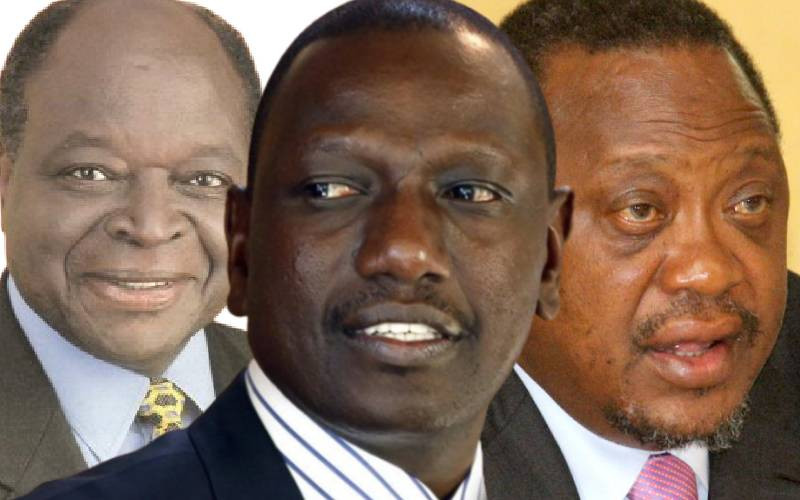Nairobi; Kenya: The requirement for President Uhuru Kenyatta to appear before the ICC judges next week for status conference proceedings seems to have given rise to a passionate debate. Aden Duale, the Majority Leader of the National Assembly, has been particularly vocal in his opposition, describing the summons as sinister and deliberately intended to humiliate the President in particular and Kenyans in general. According to Duale, President Kenyatta is the duly elected president of a sovereign country and must not be made to attend court in a foreign land.
Whereas I am generally in agreement with Duale on the apparent frivolity of requiring the President to appear at the ICC after the near collapse of his case, I am not quite with the Majority Leader in his line of argument on humiliation. As far as I know, the attendance of court in and of itself does not amount to an act of humiliation.
Hon Uhuru has previously attended the court without experiencing any form of humiliation by the court. The Deputy President, the second in command in the Kenyan leadership hierarchy, has faithfully attended court while in office but with no sense of humiliation, either to himself or to Kenya. In fact, there is a sense in which his attendance has demystified the whole process and made it routine.
Many Kenyans are no longer glued to their TVs to follow the proceedings as when they first began. Thus the sooner the President dispensed with this matter, the better for him. For to be sure, when he will have served his presidential term(s), and is no longer useful to them, the Jubilee brigade will quickly switch political sides.
If there will still be any outstanding business at The Hague, the then former president will be left to bear the weight of his own cross...alone.
When President Bill Clinton was faced with impeachment proceedings over the Lewinsky affair, the public, and especially his Democrat leaders, argued that the President must not appear before the grand jury to answer the charges. However, on Monday, August 17, 1998, President Clinton, ignoring his own lawyers’ advice, appeared voluntarily before the Federal Grand Jury via a live closed-circuit television from the White House. Thus Clinton became the first US President ever to testify in a grand jury criminal investigation concerning his own actions, and was grilled for several hours.
The prestige of the presidency and America’s status worldwide appeared to suffer as a now-humiliated Clinton was endlessly mocked by everyone, from TV comedians to average people on the street. One would imagine that this should have marked the end of Clinton’s presidency. Yet, soon after this appearance, Clinton’s leadership ratings started rising, and climbed to his all-time high of 70 per cent.
Thereafter, the Republicans, who had been keen to nail Clinton and the Democrats, found it an uphill task to pull an impeachment through.
Towards the end of His service on earth, it was clear that Jesus had accrued a whole host of enemies that were up to no good. Jesus then candidly explained to his disciples that he had to go to Jerusalem and suffer many things at the hands of the elders, chief priests and teachers of the law, and would be killed but rise on the third day. But Jesus had His own ardent defender in the person of Simon Peter. He took Jesus aside and began to rebuke Him. Peter could not countenance his master being subjected to such humiliation. But Jesus turned to Peter and said, “Get behind me, Satan! You are a stumbling block to me; you do not have in mind the things of God, but the things of men.” But Peter was not deterred.
When the soldiers later came to arrest Jesus, Peter this time drew his sword and chopped off the ear of one of them. But again, instead of congratulating Peter for his ardent defense, Jesus rebuked Peter and restored the soldier’s ear. Jesus then submitted Himself to the soldiers and was whisked away to “The Hague” to face trumped up charges. And as far as Peter was concerned, it was over. But was it? Not quite.
Paul writing much later declared that, contrary to Peter’s perspective, Jesus was not humiliated but willingly humbled Himself even unto death. And as a result, God exalted Him to the highest place.
The truth is that you cannot humiliate one who has humbled him or herself. By bowing down in humility such a person stands too tall to be humiliated. To the contrary, it is those who rise up in self exaltation that are ever so easy to bring down in humiliation. History is replete with examples. That is why the President must make a personal choice on how to handle the ICC summons.
If as an ordinary Kenyan he saw no humiliation in attending court, his temporary status as president must not exalt him too high to follow his convictions.
 The Standard Group Plc is a
multi-media organization with investments in media platforms spanning newspaper
print operations, television, radio broadcasting, digital and online services. The
Standard Group is recognized as a leading multi-media house in Kenya with a key
influence in matters of national and international interest.
The Standard Group Plc is a
multi-media organization with investments in media platforms spanning newspaper
print operations, television, radio broadcasting, digital and online services. The
Standard Group is recognized as a leading multi-media house in Kenya with a key
influence in matters of national and international interest.
 The Standard Group Plc is a
multi-media organization with investments in media platforms spanning newspaper
print operations, television, radio broadcasting, digital and online services. The
Standard Group is recognized as a leading multi-media house in Kenya with a key
influence in matters of national and international interest.
The Standard Group Plc is a
multi-media organization with investments in media platforms spanning newspaper
print operations, television, radio broadcasting, digital and online services. The
Standard Group is recognized as a leading multi-media house in Kenya with a key
influence in matters of national and international interest.








